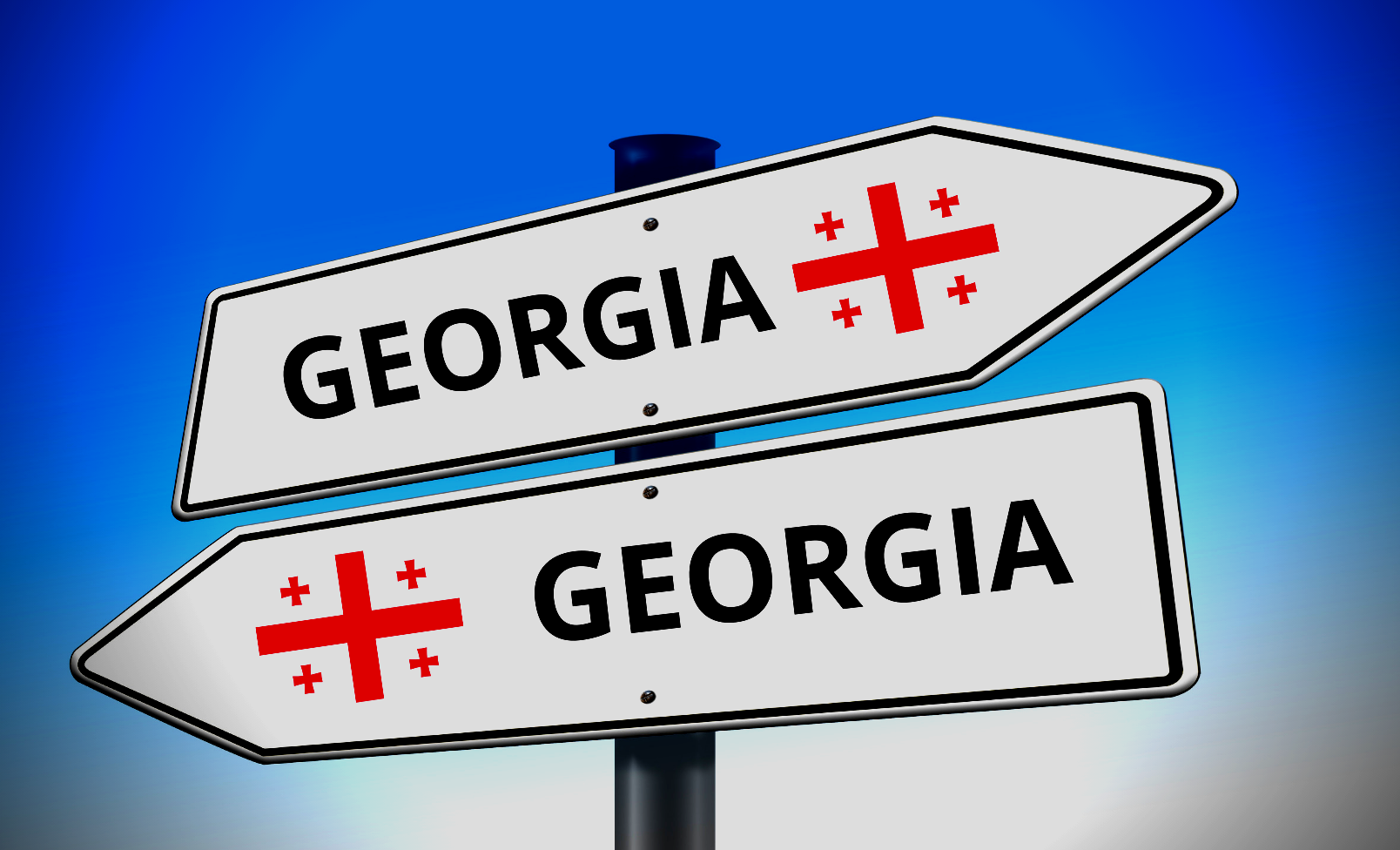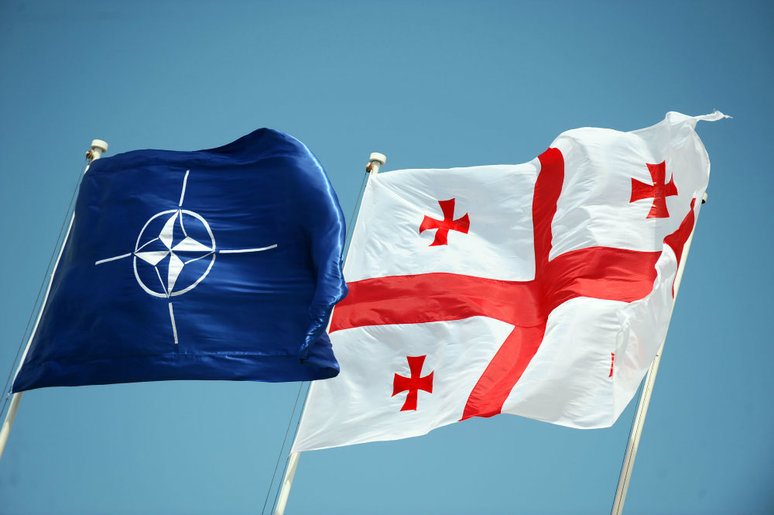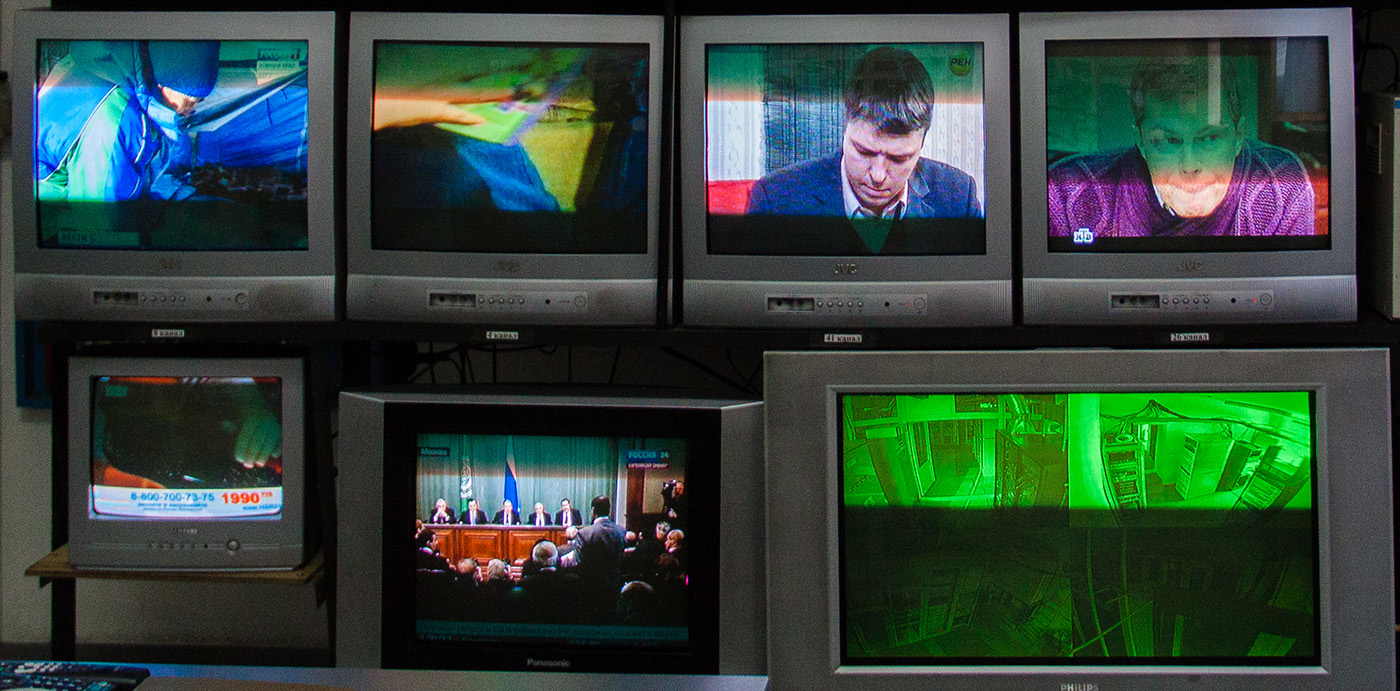It was shocking for Western friends of Georgia, and supporters of Georgia’s bid for membership at NATO and the EU, to learn that an angry mob in Tbilisi stormed LGBTQ activists’ centers, attacking journalists and tourists. Yet, as we saw on July 5, 2021, this is precisely the reality on the ground in the Georgian capital.
On the day when Georgian LGBTQ community planned to hold its Dignity March, groups of angry men, including thousands of far-right radicals and priests, violently attacked people on the streets. Among the 55 people injured, there were journalists, activists and tourists. Earlier, Georgian Prime Minister Irakli Garibashvili called the Dignity March “inappropriate,” saying it is “unreasonable” to hold the demonstration in a public place that could lead to “civil confrontation.” NGO representatives evaluated statement made by Garibashvili as incitement to hatred. Organizers of the Dignity March, not willing to endanger participants, canceled the event. This, unfortunately, did not quell the homophobic violence of the right-wing mob.
This attack fits within the global trend of resurgent homophobia. Indeed, there are many countries where LGBTQ-organized events are met with violent opposition and hatred. There are some countries where you can’t even talk about the existence of LGBTQ persons. But the fact that Georgia has been vying for invitations from both the EU and NATO for years accords the homophobia in this South Caucasus post-Soviet country a very different context. A country is not ready for a NATO or EU membership if it fails to defend fundamental principles of the democratic community: the protection of human rights.
Without doubt, respect for human rights and the dignity of others is an area where Georgia is in desperate need of development. A significant part of Georgia’s population does not accept LGBTQ peoples’ right to exist authentically; and believes, more broadly, that Western democracy is a threat to Georgia’s traditions and values. Foreign propaganda and disinformation campaigns support and mobilize such views targeting the less educated and more radical segments of the population. These groups see that LGBTQ events present a threat to their religion, a narrative greatly strongly supported by the Church.
There are also less aggressive and non-violent groups who oppose LGBTQ rights due to their view that heterosexual orientation is at the center of the Caucasian masculine identity. In attacking LGBTQ rights, these groups often invoke the importance of Caucasus tradition.
What factors have made homophobia so defining to Georgian identity and in which way is Georgian homophobia different from other non-democratic countries? Why should NATO and the EU make special accommodation for an aspiring member where a significant part of population do not respect another part, even to the point of violence and terrorism?
Let us start with examining the key participants of last week’s attack, both internal and external. Evidence is emerging that many of those who took part in the July 5 assaults in Tbilisi were called to the streets by pro-Kremlin organizations and their allies in the Georgian Patriarchy, which is well-known for its close ties to Moscow. For example, one of the organizers of the violent mob is the founder of the new political party “Eri”, Mr. Levan Vasadze, who has emerged as one of the public faces of the anti-LGBTQ rally. Vasadze is a Georgian Orthodox Church-affiliated entrepreneur who made millions in Moscow. Since 1995, Vasadze has been conducting business in Russia. He is a close friend of Mr. Alexander Dugin who is a well-known supporter of Vladimir Putin, and a Russian political analyst and strategist known for his fascist views. Vasadze made his fortune working for Russian companies such as AFK Sistema and Rosno. AFK Sistema is a Russian conglomerate owned by an oligarch. It seems that the Kremlin deploys Vasadze to Georgia to execute special influence campaigns promoting radicalization and chaos. Within the last two years, Vasadze has initiated several violent protest rallies in Georgia. His efforts are always targeted against the West.
Most recently, Levan Vasadze was sent to Georgia after the failure of another Kremlin-backed Georgian political party Alliance of Patriots. The party was created in 2012. In 2016, it managed to garner 5% of vote in an election and the party’s chairperson became a vice-speaker of Georgian parliament. From its very first day Alliance of Patriots have engaged in vicious and continuous attacks on the West and democracy. In Georgian politics, the group is the purveyor of the Kremlin’s agenda. According to files distributed by the Dossier Center in August 2020, Alliance of Patriots was under the direct control of the Russian Presidential Administration and received large sums of money from Moscow during the elections of 2020. After the scandalous revelations, the party failed to get the percentage of votes required to enter the parliament (only 2%). This failure of the Kremlin’s malign influence operators in Georgia resulted in the need to create and grow a new movement, capable of securing at least 5% of votes during elections. Enter Vasadze.
The recent EU-mandated agreement between the Georgian ruling-party and opposition, and the increased involvement of NATO member Turkey in Georgia and South Caucasus, together with the recent successful attempt of the U.S. to become more engaged in the region by moderating a peace deal between Armenia and Azerbaijan, has pushed the Kremlin to become more aggressive in its campaigns throughout the South Caucasus. The “charismatic and eccentric knight in shining armor” Levan Vasadze was dispatched to promote chaos and instability in Georgia, attack Western values, undermine Georgian society and, in this way, demonstrate to the West that Georgia is not a reliable partner.
Moscow’s long-term goal here is clear: ensuring that Georgia will never be invited into the EU or NATO. The Kremlin sees the issue of LGBTQ rights as the perfect way to make the West distance itself from Georgia, because defending human rights (LGBTQ rights) is often seen as a litmus test for Western democracies.
Any investigation into Russia’s malign campaigns must be based on proper analysis of the target country, its society and vulnerabilities. So-called protection of traditions and religion are the two fundamental narratives promoted by the Kremlin’s propaganda and disinformation in Georgia and other post-Soviet countries. Throughout the post-Soviet space, the Kremlin backs Church clergy, journalists, NGOs and other operators, who help manipulate the less-educated segments of the population and make them believe that their way of life is threatened by the West. Common arguments include the narrative that LGBTQ events “will make them all ‘gays’,” “promote LGBTQ ideology among their children,” and “undermine their traditions, history and the memory of their grandfathers and grandmothers.” These narratives are being advanced during church sermons, protest rallies, by live broadcasts of Moscow-backed media outlets, etc. Kremlin-controlled opinion makers and bots promote these narratives on social media networks, leading to further incitement of hatred.
The Kremlin is also using Vasadze to counter Turkish expansion and to preserve the Kremlin’s regional influence. As soon as Vasadze returned to Georgia, he financed massive protest rallies targeting the newly improved Georgia-Turkey relations. Pro-Kremllin media outlets, both in Georgia and Russia, actively covered these rallies to promote hatred against Turkey in Georgia. Their goal was to alienate Georgia from Turkey, one of the rising powers in the South Caucasus in the aftermath of the Second Karabakh war between Armenia and Azerbaijan.
Another organizer behind the July 5 attacks on LGBTQ activists is the radical group Georgian March. This group was established in 2016, when several right-wing activists visited Moscow in an attempt to solicit money for a new political party. At the time, the Kremlin supported two parties in Georgia and they did not see the need for a third one, so they declined to support new party. As a result, Gia Korkotashvili, Sandro Bregadze and their allies established the movement Georgian March to promote chaos and initiate aggressive anti-Western campaigns. Yet, it’s important to note, that their closest ally is Mr. Dmitry Lortkipanidze, who officially heads the Primakov Georgian-Russian Public Centre funded by Russian MFA through the Gorchakov fund.
The third Kremlin-aligned power that is promoting hatred and aggression against the LGBTQ community is the Georgian Patriarchy. The Patriarchy is a huge organization financed by the State. Each year, the government provides the church with new funds and lands. The Church is very popular in Georgia. Resultantly, the Georgian government uses the Church to secure votes during elections. Similarly, the Church uses the government to get more funds and grow its power. The current leadership of the Patriarchy has direct historical, business and political ties with Moscow. During its services, the Church supports pro-Kremlin or anti-Western politicians, laments “the threat from the West” and attacks liberal or democratic values.
Therefore, denying Georgian membership to NATO and the EU due to human rights violations against the LGBTQ community is not as straightforward as it might seem. Each participant of the attacks has done so at the instigation by Russian-backed politicians, groups and institutions.
This does not mean that there is no problem with homophobia in Georgia, and it is certainly true that some parts of Georgian society do not accept LGBTQ people. But what this analysis does reveal is that much of the incitement to hatred, and aggression has been artificially manufactured by the Russian presidential administration with the intent of alienating Georgia from the West, to Moscow’s strategic benefit. The Kremlin sees a vulnerable issue and chooses to promote radicalization and chaos.
Sadly, the Georgian government does not have effective tools to prevent or counter Russia’s influence campaigns targeted against its people. Over the past nine years, Georgia’s vulnerability has only grown, while the Kremlin’s attacks have increased in intensity, overtness, funding and scale.
In public statements, The Georgian government, including the ruling party Georgian Dream and its founding oligarch Bidzina Ivanishvili, has continued to assert their commitment to joining NATO and the EU. IN public statements, they admit that Russia is their biggest threat and that Moscow’s occupation of Georgia’s territories is unwanted and illegal.
However, in reality, the Georgian government has never taken concrete steps to counter the Kremlin’s influence, and in some cases it has actually helped Russia to achieve its goals . Among some of the most unfortunate recent examples is the case of the U.S.-backed deep-sea port Anaklia, a project, financed by U.S. companies, which was shut down by the current government. But there are countless others, such as the non-response policy towards the creeping Russian annexation of Georgian territory or inviting a Russian state Duma delegation to Georgian parliament. The will of the Georgian government to push back against Moscow’s influence is weak at best, and completely non-existent at worst.
The events of June 20, 2019 when the Georgian government ordered police to violently disperse a spontaneous anti-Kremlin rally offers some context on government capabilities to deal with mobs. Gas and rubber bullets were used by the police. Hundreds of people were injured, and several protestors even lost their eyes. Yet, on July 5, when pro-Russian radicals attacked 55 journalists, activists, and tourists. Eventually, eight people were detained. Radicals openly threatened organizers of the Dignity March, their allies and supporters for weeks. Organizers wrote letters to the Georgian police, asking to ensure their security. However, supposedly they still “were not ready” to defend their citizens.
Unfortunately, the EU- and U.S.-backed agreement signed between the government and opposition has not resulted in a long-term de-radicalization. The agreement stipulates that if the ruling party does not obtain at least 43% of votes in the upcoming local elections in 2021, snap elections will be announced automatically. For those in government, failure in these upcoming elections may result not only in the loss of power, but also prison terms in some cases. This incentivizes them to try anything possible (including bribes, usage of administrative resources, etc.) to get the needed result and stay in power. The personal risks of not succeeding in the elections for those in government are too high.
Therefore, it is unsurprising that the government decided not to alienate their core electorate and supporters by dispersing the anti-LGBTQ mob, encouraging them instead. That is why, on July 5, we all heard from the news broadcasts how the Georgian Prime Minister —the closest ally of oligarch Bidzina Ivanishvili and one of the major peddlers of Chinese economic influence in Georgia—Irakli Gharibashvili opined that the Dignity March is “inappropriate” and “should not be held.”
To sum it up, the July 5 attacks on Georgia’s LGBTQ community, and the attacks resultant impacts on the country’s path towards the Western community, is the result of joint efforts implemented by the Kremlin, the Georgian Patriarchy and the Georgian government. The only way to increase the security of the Georgian people and support country’s development is to build a resilient society, better protected against propaganda and manipulations, both domestic and foreign. It is impossible to help Georgia move forward, when government-affiliated people are deciding who to work with and which programs to schedule without the proper tools to combat disinformation. To do that, serious efforts must be made to develop prevention and response mechanisms to counter malign interference and propaganda campaigns. These must include large-scale educational programs and media campaigns, providing unbiased information to most vulnerable audiences; as well as establishing early-response mechanisms.






